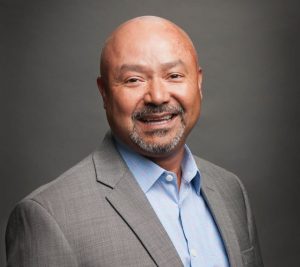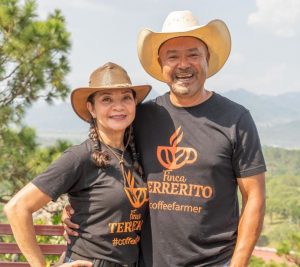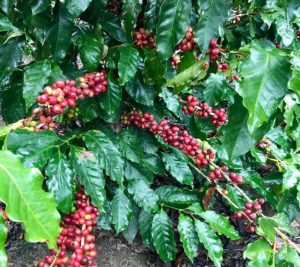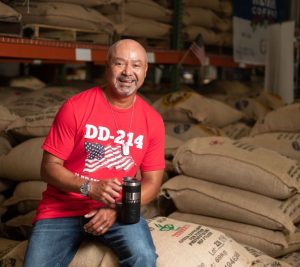By Arial Starks

Al Lopez
Al Lopez was born in a small, secluded village in Honduras near the Nicaraguan border. In the late 1960s, his family moved to a more developed area: Copán, Honduras. Lopez comes from a long line of coffee farmers, but his parents, knowing the wealth disparities of coffee farming in Honduras, wanted a different life for him and his younger brother. Lopez’s parents divorced a few years after moving to Copán, and his father relocated to Chicago, Illinois in the United States. His parents wanted their children to have better opportunities and ultimately decided Al and his brother would also relocate to the South Side of Chicago with their father in the early 1970s.
Lopez finished grade school and went on to earn a Bachelor of Science in Accounting from the University of Illinois Chicago (UIC), before beginning his professional career in 1988 working as an auditor for Coopers & Lybrand (now PwC) in Chicago. After leaving public accounting, Lopez went to work for Sara Lee in Downers Grove, Illinois, where he landed his first international role as an internal auditor.
“At that point in my career, I thought I had won the lotto, because I was flying around the world buying companies,” Lopez shared. While working on the Mergers and Acquisitions team at Sara Lee, Lopez’s colleagues encouraged him to pursue an MBA. After relocating to Memphis and moving into an Operations role with Sara Lee, Lopez decided to further his education. His professional experience made him a great fit for an Executive MBA so Lopez applied to the Vanderbilt Executive MBA program in 1998.
“I learned Vanderbilt had an International Executive MBA [IEMBA], and that really grabbed my attention,” Lopez said. “Vandy was really the pioneer in MBA programs like this. None of the other schools I looked at had anything similar.”
Lopez earned his MBA in 1999, propelling his career forward. Over the next decade, he gained much international experience, working in several C-suite positions for companies including Frito Lay, Dole, Russell Corporation, and Blair Corporation. Lopez gained insight into conducting business with other countries and cultures during the EMBA program. He says one of the most essential skills he learned was leadership.

Al Lopez (right) and Leticia Lopez (left)
“You can lead anywhere, but you have to know your audience and engage accordingly,” Lopez explained. “You can’t go internationally and try to change culture. In the U.S., we think everything should be done our way, but that is not the case. I learned that very quickly in Mexico when I was trying to conduct business like we do here in the States, and it didn’t go over well with my peers.”
After roughly 20 years of a successful corporate career, Lopez took his experience and returned to Honduras to explore entrepreneurship. While he was very accomplished in his corporate career, Lopez knew he ultimately wanted to do something that would leave a lasting impact on the world, and especially Honduras. In 2008, he began building the foundation of his coffee farm, Finca Terrerito (Finca T).
“About 40% of the population in Honduras makes a living doing something with coffee,” Lopez explained. “I came back home wanting to do something with my career that would generate a positive impact. What better way than to do it in the industry that so many in Honduras are involved in already?”
Lopez was no stranger to the coffee industry when he began his journey with Finca T. He says returning to Copán and pivoting his career to the coffee industry was a full-circle moment.
“I grew up seeing my uncles, cousins, my grandfather, and my grandmother work so hard. They would work from 4 AM to 9 PM and not have anything, and I thought to myself, ‘There is something wrong.’ I had to fix it.”
Knowing how much a cup of coffee costs in the United States and how much coffee farmers in Honduras are making for hours of hard work did not sit right with Lopez.
“In the United States, we sometimes pay more than 4 dollars for a cup of coffee, and here (Honduras), farmers get paid 80 cents for a pound of coffee, which can deliver 25 cups of coffee. I felt like there was an injustice, and with my skills and a little bit of know-how, I could give this thing a shot, impact the industry, and change the model.”
Lopez’s time in the Vanderbilt EMBA program shaped his thinking and helped him decipher the pain points within the industry.
“When I looked at the supply chain, I noticed that between the coffee farmer and the final roaster, there could be up to 9 hands touching the product, and taking a margin, but they are not really adding value to the product,” he said.
Lopez used the critical thinking skills he gained from a strategy course he took in the EMBA program to come up with a plan. “I called it Direct to Roaster [D2R]. My vision was: I’m going to plant my coffee trees, pick and process my coffee myself, and it would go from my farm directly to the roaster. No one else would touch the coffee.”
With this plan, he cut out the middlemen, producing a better-quality coffee in an ethical way. In 2016, after 4 years of harvesting, Lopez began producing coffee.
“I found the first roaster in the U.S., brought him down to Honduras to show him my vision and what we were doing, and I proved that the model worked. They [roasters] agreed to buy my coffee, so it went directly from my farm to the roasters. No one else touched it. And that’s the model today that keeps us afloat and allows us to provide benefits for our workforce.”
 Since 2016, Lopez’s business has been providing jobs and resources for hundreds in Honduras, including electricity and housing for the workers and their families. Among his many projects, Lopez is also opening a school and clinic that will serve his community.
Since 2016, Lopez’s business has been providing jobs and resources for hundreds in Honduras, including electricity and housing for the workers and their families. Among his many projects, Lopez is also opening a school and clinic that will serve his community.
“If you don’t know what it’s like not to have, then you assume that ‘Oh, this is just normal’,” he said. “But when you’re in a country like ours, and most of the workforce in Honduras probably makes 12 to 14 dollars a day—what we spend on lunch at Burger King or McDonald’s—when you see those faces, and you feel how grateful they are for what you’re doing, it just puts a smile on my face to know the impact we are making.”
Not only is Lopez making a difference with strangers, he has also impacted his own family. His daughter and son-in-law left their corporate jobs in 2018 to continue the family business by opening Alma Coffee, a coffee-roasting business in Atlanta, Georgia. Alma Coffee serves as the roaster for Finca Terrerito Coffee Farm in the United States.
“If you can improve someone’s life, why not make 2 cents less for a cup of coffee you’re selling? It doesn’t make a big difference for the roaster, but it makes a world of difference for someone in a developing country,” Lopez explained. “We can consume a great cup of coffee and make a difference for others. It doesn’t have to be one way or the other – we can all win together.”